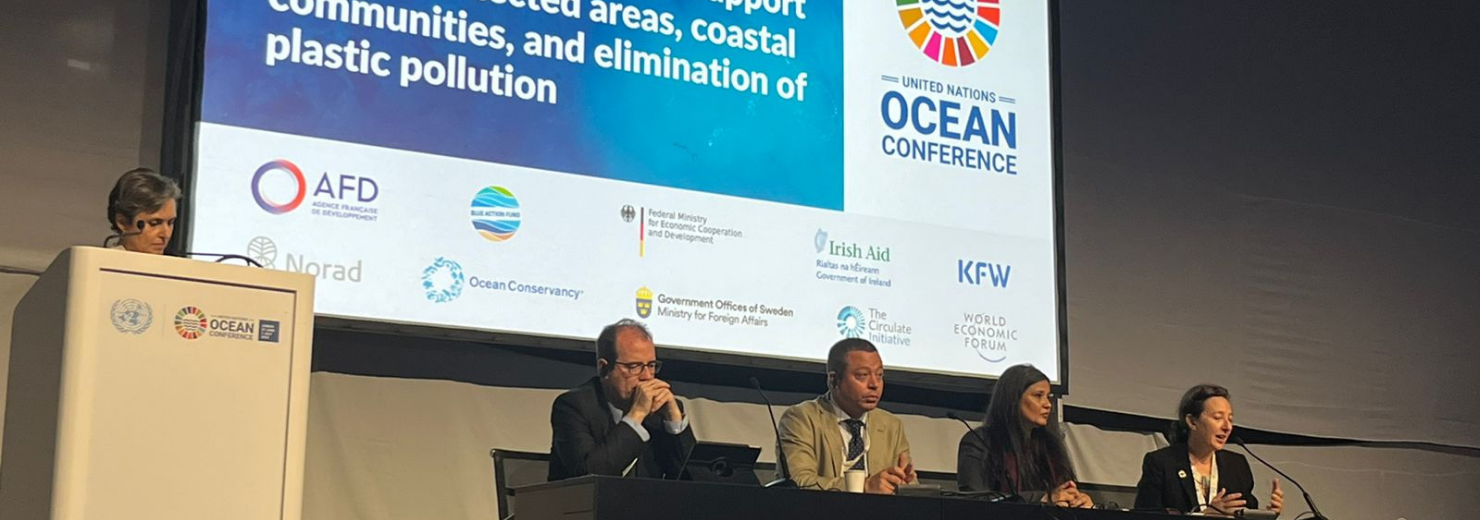Financing SDG14, the data gap and the plastics treaty: Reflections from the UN Ocean Conference 2022
-

-
Ellen Martin
-
July 8, 2022
-
2 min read

Ellen Martin
July 8, 2022
2 min read


After a long hiatus from in-person events, it was wonderful to attend the UN Ocean Conference in Lisbon last week in what was an engaging and interactive forum for meaningful discussion. In addition to meeting global leaders and ocean plastic experts from various organizations, I had the opportunity to speak at two official side events focused on ocean plastic pollution. The first was on innovation in the ecosystem and the second was on financing and investment solutions.
As I reflect on the conference, here are my brief key takeaways:
- SDG14 is one of the least funded UN goals, and there is an increasing need to drive capital flows and investment into the ocean economy. It is estimated that US$ 149 billion is needed in funding for SDG14. Significantly, innovative financing will require partnership and collaboration between both the public and private sectors. There are several promising financing initiatives already in play, including the development of a global framework for blue bonds, impact investments to de-risk early-stage ventures, blended finance schemes and multi-donor funds, such as The World Bank’s PROBLUE program.
- The knowledge gap continues to exist, and in some cases, widen. The need for data to drive research-backed solutions is important to further innovation and advance the circular economy where it is needed most. While evidence-based models remain the goal, it is equally key to remain pragmatic and allow for time and resources to drive pilot solutions. Our support of rapid assessments using the Circularity Assessment Protocol developed by University of Georgia’s Circularity Informatics Lab is a clear example of this type of approach.
- The global plastics treaty is a crucial instrument and will define the outcomes of the ocean plastic crisis for decades to come. Each player from governments to corporates to civil society has a role to play and defining each player’s roles will be paramount to arrive at an effective treaty that will benefit all stakeholders. Moreover, the treaty should be inclusive, accessible to developing countries and enable the voice of the informal sector. There will be more attention on this topic in the months to come as negotiations begin.
The need for action and collaboration has never been greater, and post-Lisbon my hope is that we can move from words to action as fast as possible in order to tackle the plastic pollution and waste management crises head-on.